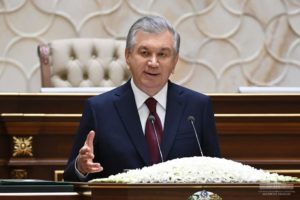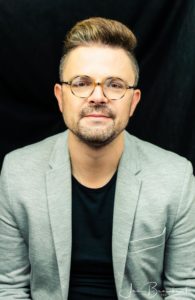
Uzbekistan, following the presidential elections of October 24, is entering a new chapter in its history since independence 30 years ago. The re-election of Shavkat Mirziyoyev, as President of the Republic, not only confirms the success of the liberalization accelerated in the last five years, but also opens the possibility for the latter to continue the strategy of modernization and of democratization to which he is particularly attached.
Voters went to the polls giving him 80% of their votes, so that he could continue this long groundwork which is already making Uzbekistan one of the most dynamic and promising countries in Central Asia for the years to come.
On November 6, in his speech at the inauguration ceremony, at a joint meeting of the chambers of the Oliy Majlis, the newly elected President of the Republic of Uzbekistan Shavkat Mirziyoyev outlined the main directions of the upcoming activities of the state organs serving a common goal: the construction of the New Uzbekistan. A development strategy to achieve this was widely discussed with the population during the election campaign. In this important conceptual document, in order to ensure the coherence and continuity of a good number of transformations, the main idea was to move “From an action strategy to a development strategy”.
This New Uzbekistan Development Strategy has seven directions. First, it is about the implementation of a popular and humane State “which provides for large-scale reforms aimed at building a state concerned with dignity, guaranteeing the legitimate interests and the well-being of each of its citizens, whatever their nationality, language and religion are, on the basis of the further development of a free civil society. Second, justice and the rule of law, a fundamental and necessary condition for building a popular State, in order to respect the honor and dignity of each person. Third, the priority task is to develop the national economy and increase its growth rates. Fourth, the further implementation of equitable social policy, the provision of quality education as the most important factor in the development of human capital should be emphasized. Fifth, great importance is given to reforms in the spiritual and educational field. The concept of “New Uzbekistan” also includes the idea of fostering an enlightened society. Sixth, the development of appropriate solutions and active participation to overcome global threats and challenges, such as climate change, environmental issues, radicalism, extremism and terrorism, human trafficking, drug trafficking and others, is a top priority. Seventh, the increase in the power of the armed forces of the republic, must constitute a reliable guarantee to ensure peace and security in the country.
The achievement of some of these goals is already underway. Other examples to present are essential. On November 1, President Shavkat Mirziyoyev had already announced that he wanted to pay particular attention in the State budget for 2022 to essential social issues in the context of democratization. In particular, $ 5 billion should be allocated to education and health. Other measures include opening of 1,600 kindergartens in remote areas, building 40 new schools and repairing 235 schools, updating textbooks and establishing 2,000 computer classes. By 2022, there are already plans to allocate nearly $ 1 billion for the development of primary health care and the introduction of high-tech medical services in remote areas.
From the point of view of housing, another national priority, 140,000 homes have already been built under mortgage programs to help Uzbeks access homeownership. In view of the institution of marriage which does not know the crisis, and to cope with the rising demographics, many real estate programs will be launched in all regions of Uzbekistan. There is an urgent need to speed up housing construction across the country. In order to develop, a country must not leave isolated regions aside and must make its entire territory attractive.
Uzbekistan has set itself the goal of further increasing the gross domestic product per capita by mobilizing the resources and opportunities available in the country for this. As a result, by 2030, Uzbekistan is expected to join a number of States with above average per capita income. It is expected to achieve this objective mainly by stimulating the private sector and increasing its share, as well as by attracting foreign direct investment. For example, on the basis of the principle of the fabrication “from raw materials to finished products”, a cluster system will be developed in the conductor industries.
One of the priority tasks of economic reform is to accelerate the transformation and privatization of public enterprises. By creating a market based on free competition, the guaranteed supply of the population and entrepreneurs with energy resources will be ensured.
Finally, at this stage, the country has announced that it wants to make ecology a major project for the next five years, which will involve not only the modernization of the country’s irrigation network, but also the drilling of new wells and the introduction of drip irrigation for agriculture to substantially save the huge water consumption in this sector. The government will also aim to gradually introduce the production and planting of trees and plants that consume less water than before.
We see that the priority of the government is to accelerate not only the development but to improve the quality of life of their fellow citizens, in order to allow Uzbekistan to grow, to modernize like no other country in the region to this day. It is the great challenge of a man but of a whole country which is launched and this for decades to come for more than 36 million Uzbeks. Now, the emergence of a new political and economic dragon in Central Asia is increasingly plausible provided the reform package continues at this rate and in this direction.

Sébastien BOUSSOIS
Doctor in political science, Middle East researcher Euro-Arab relations/ terrorism and radicalisation, teacher in international relations, scientific collaborator of CECID (Université Libre de Bruxelles), OMAN (UQAM Montréal) and SAVE BELGIUM (Society Against Violent Extremism

















